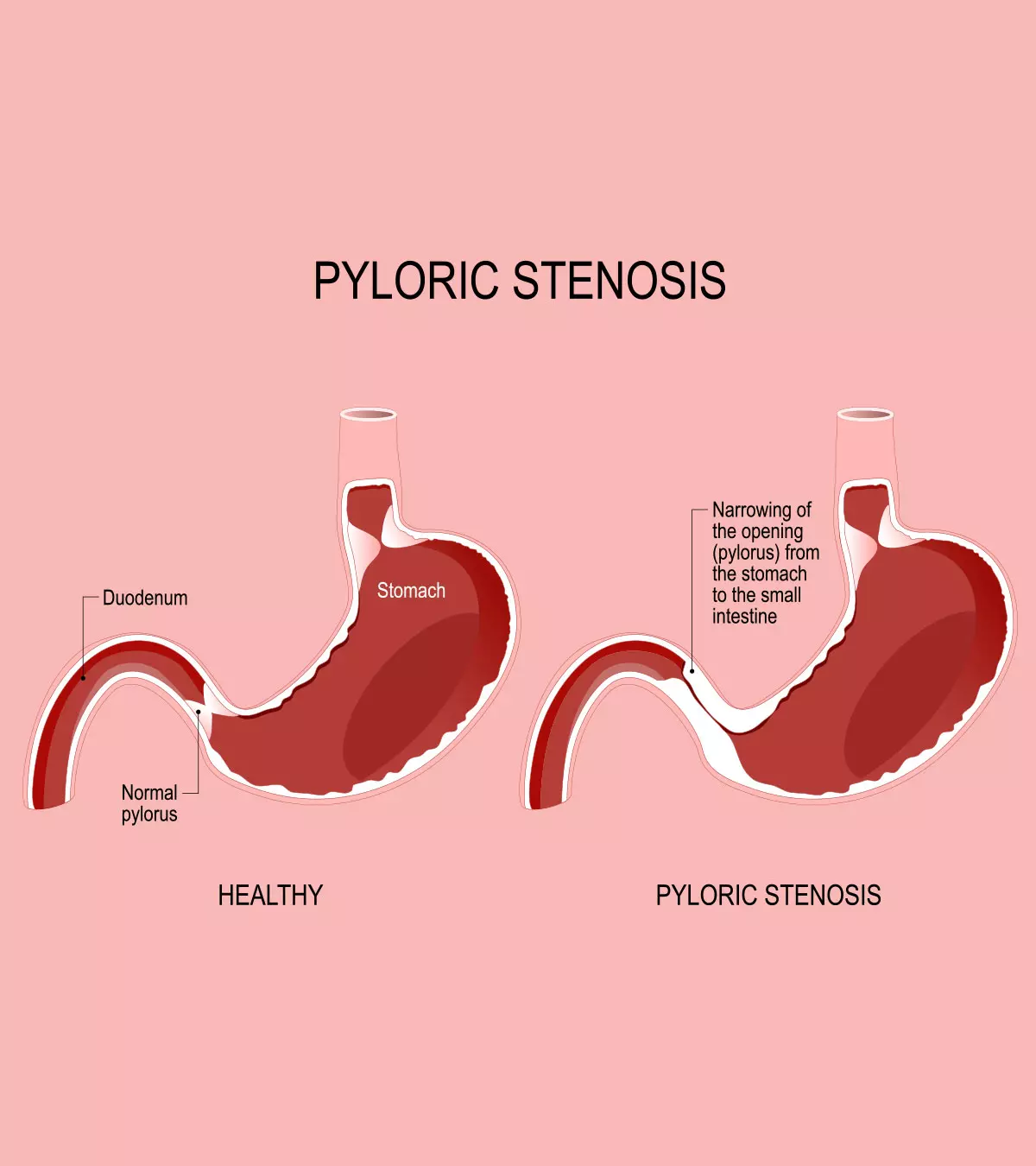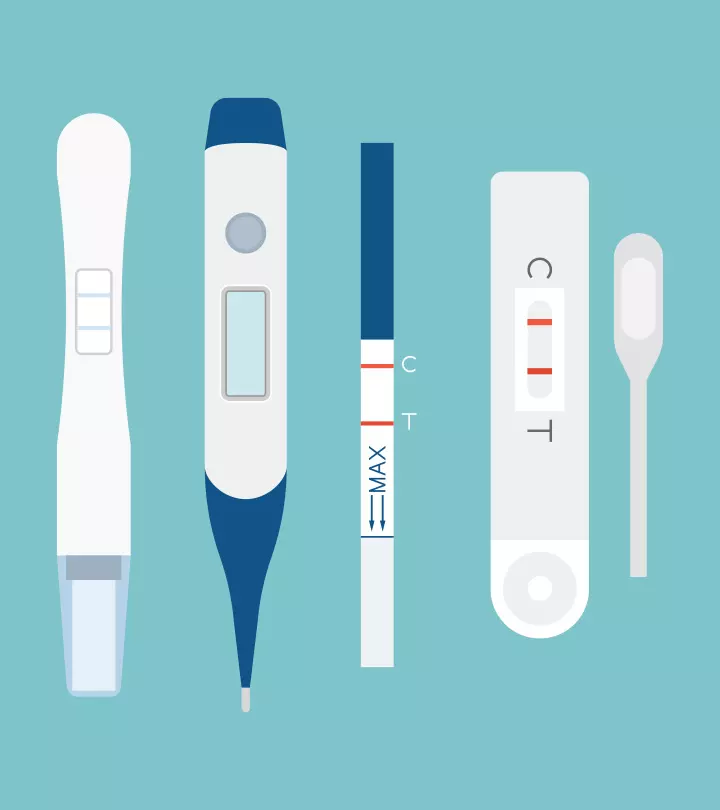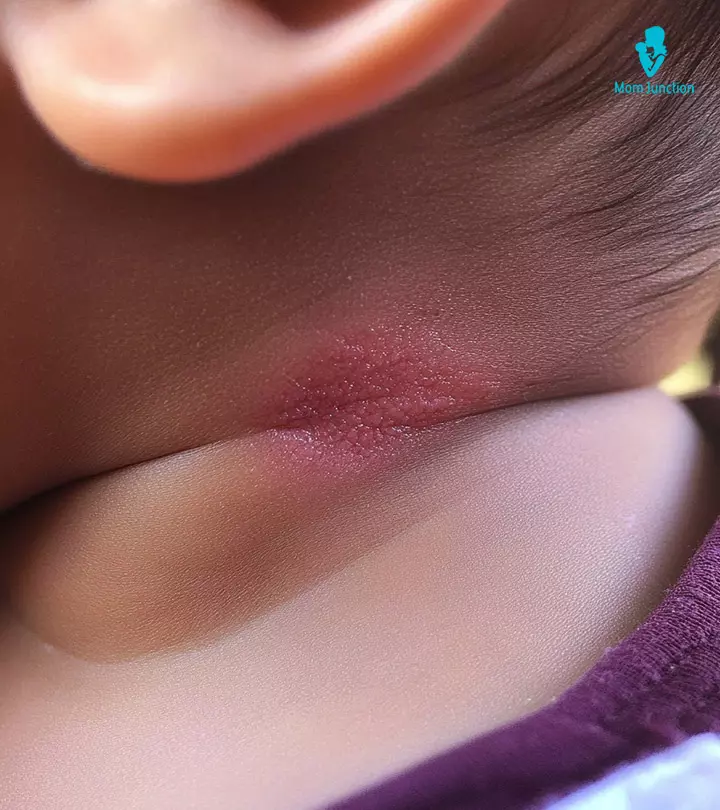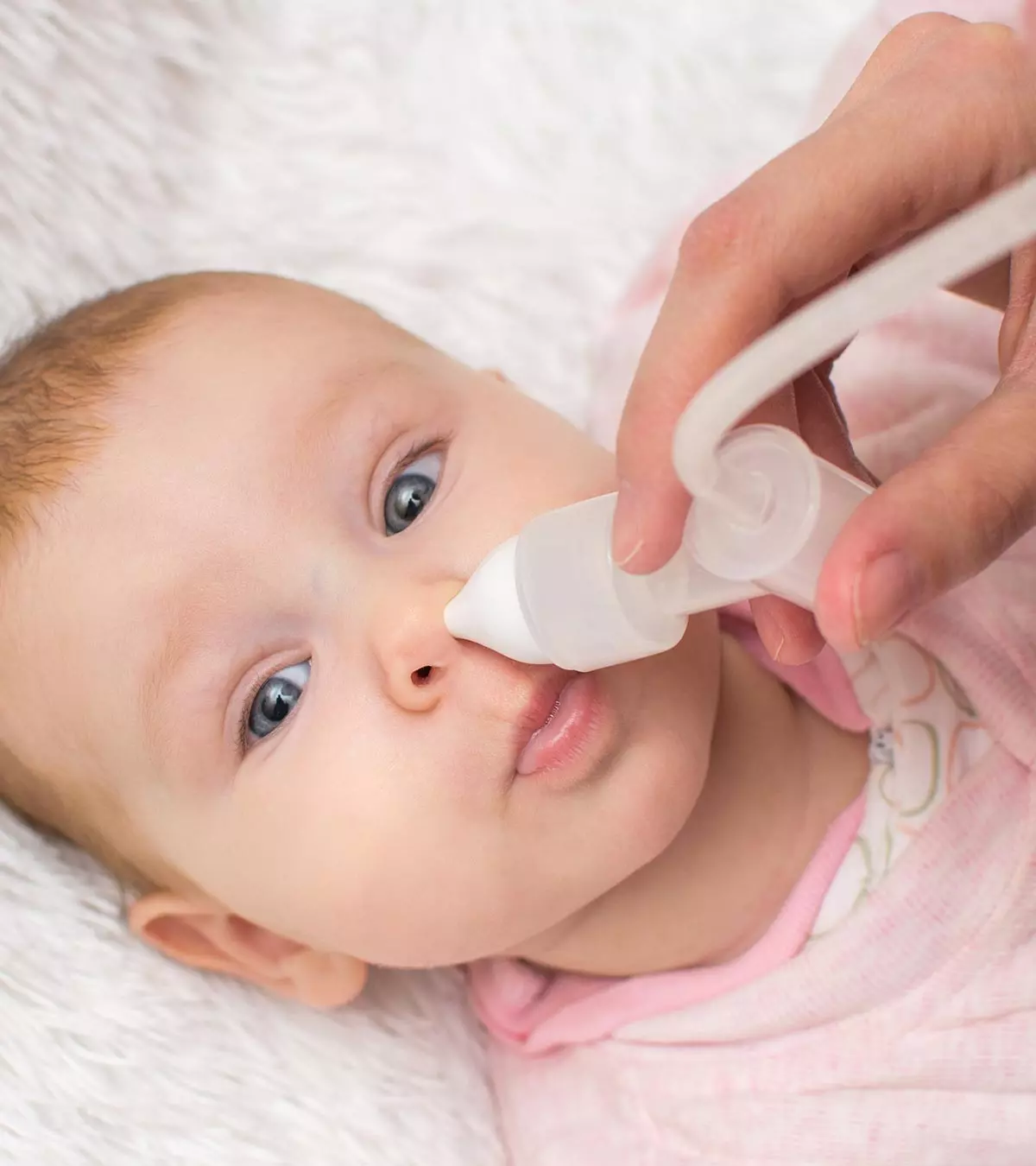
Chest congestion in babies is a common problem that’s usually harmless though it can make breathing difficult, making babies irritable. Blocked nose, flared nostrils, and wheezing, are a few common signs of chest congestion that can make a baby distressed and fussy.
Usually, a baby develops chest congestion when excess mucus builds up in the chest. However, there can be several other reasons for a baby to develop chest congestion. Read this post to learn about the common causes of chest congestion in babies, its symptoms, treatment, and prevention strategies.
Key Pointers
- Babies may experience nasal congestion due to an infection, allergy, or genetic disorder.
- It is generally presented with symptoms such as breathing difficulty, cough with phlegm, or loss of appetite.
- You may try some home remedies such as increasing the fluid intake or gentle back rub with a cold ointment.
- Doctor’s consultation is essential in case of severe symptoms.
What Is Chest Congestion?
Chest congestion is the accumulation of excess mucus in the lungs, bronchi, and the trachea. Mucus works like the first line of defense for the body. The respiratory system is lined with cells that produce sticky mucus, which traps pathogens and other foreign bodies (1). The upper respiratory system produces more mucus if it detects a pathogen or a foreign body. This excess mucus blocks the airway and leads to chest congestion.
Baby chest congestion is thus a symptom of an infection or the entry of a foreign body. And the chest congestion itself displays several other symptoms.
What Are The Symptoms Of Chest Congestion?
A baby with chest congestion might display the following symptoms:
- Coughing: A chronic wet cough is an indicator of mucus accumulation in the lungs. A crackling sound along with cough in babies may indicate that mucus is being coughed up from the airways.
 Point to consider
Point to consider
- Excessive mucus in the mouth: The baby will also cough out phlegm into their mouth. Phlegm is the mucus exclusively produced by the respiratory system. Coughing out phlegm is the body’s way of ridding itself of pathogens and other microbes (2).
- Wheezing: You are likely to hear the baby wheezing while breathing as the airways get blocked due to the inflammation of the airways and the accumulation of mucus. The wheeze will sound like a faint whistle, a wind passing through a tunnel or a sound from a squeaking toy.
- Poor appetite: The baby may not want to eat and lose their appetite.

- Fussiness: Constant chest congestion and breathing difficulties will make the baby feel irritated and cranky.
Chest congestion is itself a symptom of an upper and/ or lower respiratory system infection or problem.
The signs of chest congestion in a baby can vary depending on the underlying cause.
When To See A Doctor?
See a pediatrician when the baby displays the following symptoms:
- Fever; temperature above 100.4°F (38°C)
- Lethargy and constant drowsiness
- Loss of appetite for over a day
- Swelling of the face, neck, or eyes
- The baby gasps for air or has difficulty breathing
The doctor will diagnose chest congestion by listening to the baby’s breath. The underlying cause can be determined through blood and sputum test. There are several reasons why an infant could develop congestion in their chest.
 Be watchful
Be watchfulWhat Causes Chest Congestion In Babies?
The following are the main reasons why an infant could develop chest congestion:
- Infection: Pathogens can trigger the excess production of mucus by the body. A common infection that can cause congestion is the common cold. Several pathogens, such as the respiratory syncytial virus (RSV), can cause cold-related chest congestion among babies (3).

- Allergy: Allergies can also lead to excess secretion of mucus in the upper and/or lower respiratory system. Allergies, such as asthma and allergic rhinitis, cause excess secretion of mucus in the lungs (4).
- Exposure to an irritant: Inhalation of an irritant like smoke or dust can also cause an infant to have a congested chest (5).
- Genetic ailments: Some genetic diseases, such as cystic fibrosis, can cause the body to produce more mucus naturally. Infants with conditions such as cystic fibrosis have more than normal secretion of mucus in the lungs (6).
The treatment of chest congestion depends on the underlying cause.
How Is Chest Congestion In Babies Treated?
Chest congestion in infants is cured by treating the problem that caused it. Antibiotics and expectorants are sometimes used to treat chest congestion. Expectorants loosen mucus but they are not used for babies younger than two years.
Management of viral infections, allergies, and genetic diseases are other ways to treat congestion. Viral infections cannot be treated with antibiotics but go away in time as the immune system gets stronger. Also, allergies and genetic diseases are persistent and can last a lifetime. Efficient management is the key to prevent them from causing any inconvenience to your baby.
Consult a pediatrician for the right treatment and avoid self-medication. However, you may try a few home remedies to ease a baby’s chest congestion.
Home Remedies For Chest Congestion
You may consider the following home remedies for chest congestion in babies:
- Increase the number of feeds to give the baby more fluids, as it helps loosen the mucus and keeps the baby hydrated. Babies with chest congestion may feed less than usual. While breastfeeding, take care to avoid aspiration that increases chest congestion particularly in infants.

- Give more fluids: Provide small sips of water to babies older than six months. Water, just like other fluids, can help loosen the mucus in the chest (7). You can also give liquid food items such as vegetable broth and thin purees to a baby, who is on a solid diet.
- Cool-mist humidifier: A humidifier is a device that pumps water vapor into the air. Humidity in the room helps break down the mucus and makes breathing easy for the baby. It can also help moisturize the upper respiratory system. Only use a cool-mist humidifier and not a steam/hot-mist humidifier as the latter can pose the risk of burns (8). Bathing the baby in a steamy bathroom can also help loosen the mucus.
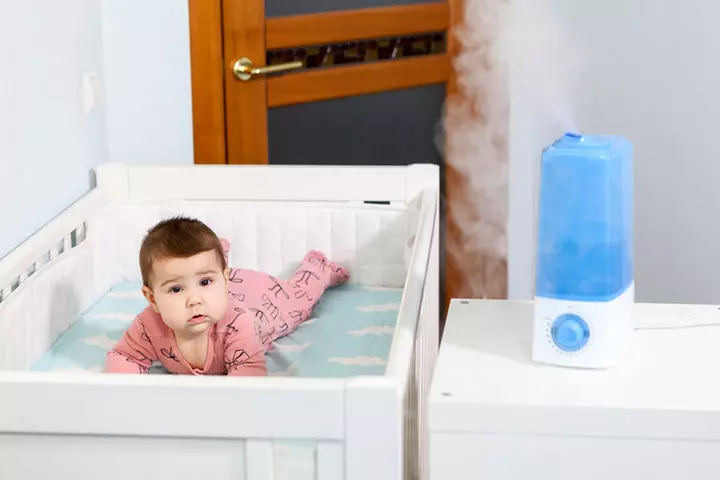
- Raise the infant’s head for some time: Let the baby rest in your lap with their head slightly raised. It will cause the mucus to dribble and settle downwards in the chest, thus helping the baby breathe and sleep better. If your baby is older than 18 months, then you can use a pillow to raise their head. Avoid using a pillow for a baby younger than 18 months (9).
- Tapping the back: Place the baby in your lap such that their back faces you. Support their body with one hand and with the other hand gently tap their back between the shoulder blades. Keep tapping gently for a few seconds to loosen the thick mucus and make breathing easy.
If the baby has cystic fibrosis, then they will need a distinctive, rhythmic style of tapping with a cupped hand. A doctor or a specialist in cystic fibrosis patient care can teach you the right way of tapping, depending on the age of the baby and the severity of their condition.
- Use a baby rub: You can apply an age-appropriate cold ointment such as Vicks for babies on the chest and back before their bedtime. This helps loosen the mucus and also soothes the baby.
Daniela, a mom, shares her experience using a baby rub for her daughter Ava for congestion. She says, “To help Ava with her congestion, I made a homemade baby vapor rub (no petroleum or any questionable oils in vapor rub). A little on her feet + socks + bedtime = a happy baby. I didn’t use it all day or every day since she was only one, but it helped the days I used it (ⅰ).”
The above home remedies can work in tandem with the medical treatment suggested by the doctor. Medical treatments and home remedies will help the baby feel better, but prevention is always better than cure.
 Quick tip
Quick tipHow To Prevent Chest Congestion In Babies?
Preventing chest congestion in infants is about avoiding everything that causes excess mucus accumulation in the chest. Below are the preventive measures you can take.
- Maintain hygiene: Keep the baby’s surroundings clean and maintain hygiene when handling them or their items. Older infants and toddlers should wash their hands after playing outdoors. If someone in the family has flu or cold-like symptoms, they must avoid contact with the baby to prevent the spreading of the pathogen.
- Be aware of allergies and genetic diseases: If you know your baby has allergies, then keep them away from the allergen. Infants with genetic ailments like cystic fibrosis require routine care to prevent chest congestion.
- Follow vaccination schedule: A lot of diseases that cause chest congestion can be prevented through immunization. Stay up-to-date with your baby’s vaccination shots.
- Protect the baby from irritants: Smoke from automobiles and cigarettes are potential irritants for the upper respiratory system. Avoid taking the baby to places where they could be exposed to air pollution. Do not let anyone smoke in the house since even small quantities of tobacco smoke can irritate the baby’s lungs.
Frequently Asked Questions
1. Can a baby be congested without being sick?
Several factors can contribute to congestion in babies without making them sick. For example, dry air could thicken the nasal mucus and lead to congestion (10).
2. Why does my baby sound congested despite showing no signs of mucus?
Newborn babies can show signs of congestion due to their small nasal passages. If your baby sounds congested, look for other signs of illness such as fever, restlessness, and decreased milk intake. You may consult a doctor if none of these signs are present and the congestion worries you.
3. Does baby Tylenol help with congestion?
Infant’s Tylenol, a medicine that includes acetaminophen, is primarily used to treat fever and pain in babies (13). It typically doesn’t help treat nasal congestion specifically. Consulting a pediatrician for appropriate remedies could be more beneficial for congestion relief in babies.
4. Can babies breathe through their mouths when congested?
No, babies cannot breathe through their mouths when congested. They primarily breathe through their noses, so it becomes difficult for them to breathe when their nose is blocked. Saline nose drops or spray can help loosen the mucus and alleviate congestion (14).
5. Can chest congestion in babies lead to more serious health problems?
Untreated and recurring chest congestion might sometimes indicate severe underlying health issues such as respiratory infections, aspiration, and pneumonia in babies, necessitating immediate medical attention (15).
6. Is chest congestion more common in premature babies?
Premature babies are more likely to experience respiratory issues, which may cause chest congestion. Therefore, they require constant monitoring and medical attention (16).
7. What are some common myths about chest congestion?
Many parents assume that chest congestion is merely a cold symptom, but infections and allergies can also cause it. Some parents also avoid feeding a congested baby. However, keeping the baby hydrated is essential, as fluids help loosen mucus.
Chest congestion in babies occurs due to the accumulation of mucus in the lungs, trachea, and bronchi. It is a symptom of an underlying infection, and hence, the signs depend on the cause. If your baby develops any signs of persistent coughing, wheezing, or fussiness, consult your doctor for prompt medical attention. The doctor may treat this problem with a course of antibiotics or expectorants, depending on the cause. Simultaneously, you could try some home remedies for a better prognosis after consulting your pediatrician.
Infographic: Home Remedies For Chest Congestion
Chest congestion may signal an underlying medical issue, leading to restlessness and irritability in infants. While some may need medical treatment, you can try home remedies for relief after consulting a healthcare professional. Check out this infographic for effective home care tips to soothe chest congestion in babies.
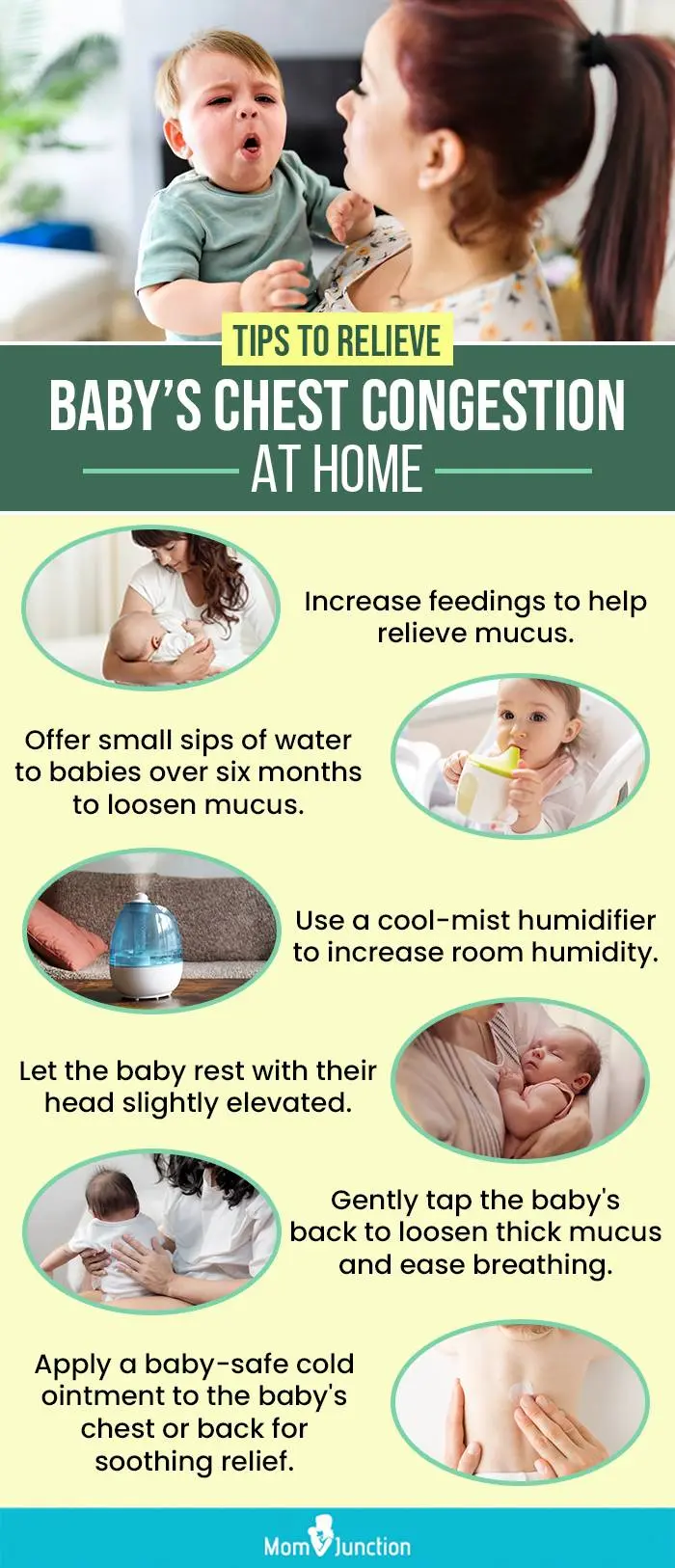
Illustration: Momjunction Design Team
Illustration: Chest Congestion In Babies: Causes Symptoms & Home Remedies

Image: Dall·E/MomJunction Design Team
Learn how to massage your baby in just one minute to help relieve colds, coughs, and congestion. In this video, get tips on the best techniques to soothe your little one.
Personal Experience: Source
MomJunction articles include first-hand experiences to provide you with better insights through real-life narratives. Here are the sources of personal accounts referenced in this article.
ⅰ. Homemade Baby Vapor Rub For Chest Congestion;https://iputabirdonit.blogspot.com/2014/04/homemade-baby-vapor-rub-for-chest.html
References
1. Immune System; Microbiology Society
2. All About That Mucus: How it keeps us healthy; Harvard University
3. RSV: When It’s More Than Just a Cold; American Academy of Pediatrics
4. Mowing Down Your Grass Allergies; American Academy of Allergy, Asthma & Immunology
5. Mucus and Phlegm: What to Do if You Have Too Much; Cleveland Clinic
6. Cystic Fibrosis: Helping Your Child Cough Up Mucus; C.S. Mott Children Hospital
7. Chest infection; NHS UK
8. Caring for Your Child’s Cold or Flu American Academy of Pediatrics
9. Healthcode: Child Care Programs ; NYC Government
10. Colds (0-12 months)
11. Cough (0-12 Months); Seattle Children’s
12. RSV: When It’s More Than Just a Cold; American Academy of Pediatrics
13. Acetaminophen Dosing Tables for Fever and Pain in Children; American Academy of Pediatrics
14. Stuffy Nose, Sneezing, and Hiccups in Newborns; Saint Luke’s
15. Premature babies;March of Dimes
Community Experiences
Join the conversation and become a part of our nurturing community! Share your stories, experiences, and insights to connect with fellow parents.
Read full bio of Dr. Fadel Husrom
Read full bio of Rohit Garoo
Read full bio of Dr. Ritika Shah
Read full bio of Anindita Ghatak














